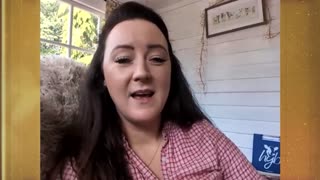Premium Only Content

Australia is Dying, Australia is Woke to Death, Economic , Health Care, Taxation, Money Laundering
Australia is Woke to Death, Economic , Health Care, Taxation, Homelessness, Fires, Money Laundering
The Australian economy has become heavily dependent on the real estate market, with property prices skyrocketing over the past few decades. The reasons for this are complex and multifaceted, and can be traced back to a variety of factors including government policies, economic growth, population growth, and cultural attitudes towards home ownership.
One of the key factors contributing to the dependence on real estate is government policies that have encouraged investment in property. One such policy is negative gearing, which allows investors to deduct losses on their investment properties from their taxable income. This has incentivized many Australians to invest in property, which in turn has driven up demand and prices. Additionally, the government has provided various incentives for first-time homebuyers, including grants and stamp duty concessions, which have further fueled demand.
Another factor contributing to the dependence on real estate is economic growth. As the Australian economy has grown over the past few decades, so too has the demand for housing. The strong economic growth has also attracted foreign investors, who have poured billions of dollars into the Australian property market. This has further driven up prices, making it increasingly difficult for ordinary Australians to enter the housing market.
Population growth has also played a significant role in the reliance on real estate. Australia's population has grown rapidly over the past few decades, fueled by immigration and a high birth rate. This has put significant pressure on the housing market, with demand outstripping supply in many areas. As a result, prices have soared, making it increasingly difficult for young people and low-income earners to find affordable housing.
Cultural attitudes towards home ownership have also contributed to the dependence on real estate. Australians have traditionally placed a high value on owning their own home, viewing it as a symbol of success and stability. This has led to a culture of homeownership, with many Australians willing to take on significant debt to purchase a property. This has further driven up demand and prices, as people are willing to pay a premium to own their own home.
The dependence on real estate has had significant implications for the Australian economy. On the one hand, it has contributed to economic growth, with the construction industry providing jobs and driving economic activity. However, it has also created significant challenges, particularly in terms of affordability. The high cost of housing has made it increasingly difficult for young people and low-income earners to enter the market, contributing to a growing wealth divide in Australia, It has also created significant financial risks, with many Australians taking on large amounts of debt to purchase property.
There are a number of potential solutions to address the dependence on real estate. One option is to reform government policies, such as negative gearing, to reduce the incentives for property investment. This could help to rebalance the economy and reduce the risk of a housing market crash. Another option is to increase the supply of affordable housing, either through government investment in social housing or through incentives for developers to build more affordable homes. Finally, there could be a shift in cultural attitudes towards renting, with more Australians embracing the idea of renting rather than owning their own home.
In conclusion, the Australian economy has become heavily dependent on the real estate market due to a range of factors including government policies, economic growth, population growth, and cultural attitudes towards home ownership. While this has contributed to economic growth, it has also created significant challenges, particularly in terms of affordability and financial risk. There are a number of potential solutions to address this dependence, including policy reform, increased investment in affordable housing, and a shift in cultural attitudes towards renting. However, these solutions will require significant political will and cooperation between government, industry, and the broader community.
Australia is Woke to Death,Economic,Health Care,Taxation,Homelessness,Fires,Money Laundering,abc news,australia wokeness,economics explained,contributing to a growing wealth divide in Australia,It has also created significant financial risks,with many Australians taking on large amounts of debt to purchase property.,economic collapse 2023,mike martins housing,mike martins,woke to death,australia is dying
-
 1:46:17
1:46:17
Mike Martins Channel
16 days ago $0.55 earnedMike in the Night E616 - Crusades 2.0 in Europe, More Ukraine Money Laundering, Israel keeps bombing
4006 -
 LIVE
LIVE
BEK TV
22 hours agoTrent Loos in the Morning - 9/11/2025
676 watching -
 22:25
22:25
DeVory Darkins
1 day ago $20.50 earnedTrump issues statement to the nation as FBI drops shocking update about shooter
83.6K136 -
 10:55
10:55
Nate The Lawyer
2 days ago $1.59 earnedPortland's WOKE Laws Stop ALL Arrests to Help Illegal Migrants Fight ICE.
27.9K25 -
 3:06:32
3:06:32
Price of Reason
15 hours agoCharlie Kirk Investigation Continues | Remembering 9-11 | Robert Downey Jr. Doctor Doom Look Reveal
265K67 -
 2:12:26
2:12:26
Inverted World Live
10 hours agoManhunt for Suspect in Charlie Kirk's Assassination Continues, NASA Reveals "Life" on Mars | Ep. 107
252K55 -
 2:44:02
2:44:02
TimcastIRL
12 hours agoMedia Warns Of Civil War Following Charlie Kirk Assassination | Timcast IRL
481K366 -
 2:59:56
2:59:56
Laura Loomer
13 hours agoEP143: Remembering Charlie Kirk (1993–2025)
115K80 -
 58:04
58:04
Man in America
15 hours agoCharlie Kirk’s Assassination—An URGENT WARNING for America
125K176 -
 1:22:15
1:22:15
Glenn Greenwald
14 hours agoCharlie Kirk Assassination Fallout: U.S. Reps Call for Censorship; Do Graphic Videos Serve the Public Interest? Plus: WIRED Reporter on the Dark Side of Surrogacy | SYSTEM UPDATE #513
230K201